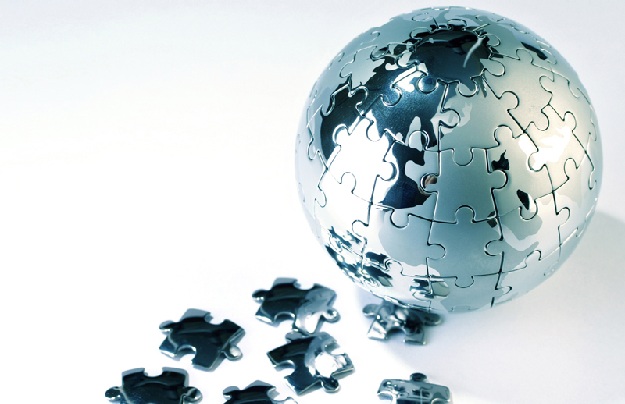The fragile unity of the St Petersburg powerhouse will be tested at G20, as Russia hosts the September summit

In the first week of September, the eyes of the world will be on Constantine Palace, overlooking the Gulf of Finland near St Petersburg. Russia is the host of the Group of 20 summit 5-6 September, bringing together the leaders of 19 industrialised, and industrialising, countries as well as the European Union. Also traditionally in attendance are the heads of the International Monetary Fund and the World Bank.
After his intransigent performance at the Group of Eight, or G8, summit in Northern Ireland in June, where he stood alone in support of the Syrian regime, Russia’s President Vladimir Putin will be seeking to appear more statesmanlike as he welcomes his fellow leaders to the G20. Since Russia is also the next host of the G8, which will be held in the Black Sea resort of Sochi in summer 2014, the coming months are seen in Moscow as an opportunity to assert the country’s importance in the world.
It will be easier for Putin to play a more constructive and conciliatory role at the G20, which has been at the centre of efforts to resolve the international economic crisis since it began more than five years ago. Although critics complain that the G20 pursues neo-liberal economic policies, which promote corporate interests and the markets above issues like poverty reduction and climate change, it is difficult to dispute the power of a body that represents 90 per cent of global GDP, 80 per cent of international trade and two-thirds of the world’s population.
The G20 embraces countries such as Germany, India, Brazil and Japan, which are leading candidates to join an expanded United Nations Security Council, with China, which is a member of the Security Council but remains outside the G8. It gives a stage, too, to regional powerhouses such as Mexico, South Africa, Saudi Arabia and Australia. Although Finance Ministers and central bankers from the G20 countries had been meeting annually since 1999, it was not until the first meeting of leaders in Washington in November 2008, which took swift and sweeping action to stabilise the international financial system in the wake of banking collapses and market crashes, that the organisation gained its present status.
So influential has the G20 become that some believed the G8 would simply be subsumed into it, but it is more likely that the smaller organisation will continue to function as a safety valve. G8 summits nearly always appear to be hijacked by the latest crisis, this year’s example being Syria. So why not leave it to deal with political issues and other ‘soft’ areas such as development and international security, the thinking goes, and keep the economic bargaining apart, in the G20? At the beginning of 2013, with the industrialised world in recession and the eurozone particularly hard-hit, it might have appeared that the faster-growing industrialising nations might have the upper hand at St Petersburg. But since then, markets have taken fright at possible slowdown in China, there has been significant social unrest in Turkey and Brazil, and the host country, Russia, faces increasing difficulties with an economy unbalanced by its dependence on oil revenues.
The message for the G20 participants in September seems to be: hang together, or you will hang separately.
The issues
Promoting growth and jobs has been declared the overriding aim of the G20 summit. The Russian presidency has outlined three broad themes – effective regulation, job and investment creation, and greater trust and transparency – but the issues below will determine the success or otherwise of the summit.
IMF reform
As the first BRICS (Brazil, Russia, India, China and South Africa) industrialising nation to host the G20 leaders, Russia has promised “maximum efforts” to increase their stake in the International Monetary Fund and in the process give them greater voting power.
Chance of success? Not immediate. The need for reform, and greater funding for the IMF, has been widely agreed for years, but action never seems to follow.
Tax dodging
Tax avoidance by multinationals, such as Google and Amazon has shot up the agenda in several G20 countries. The Organisation for Economic Co-operation and Development (OECD) is drawing up proposals to regulate “transfer pricing”, where multinationals move profits to low-tax jurisdictions.
Chance of success? The summit is likely to support a crackdown, but new regulations are at least a couple of years away, probably much longer.
Competitive devaluation
G20 finance ministers pledged early this year not to indulge in policies deliberately aimed at reducing the value of their currencies to gain trade advantage.
Chance of success? Quite high. Japan is being allowed to adopt measures that tend to weaken the yen, other currencies are firming up.
Debt reduction
Leaders agreed in Toronto in 2010 to cut debt. The deal will expire unless renewed at St Petersburg.
Chance of success? Slim.
Protectionism
Russia, a newly-fledged member of the World Trade Organisation, wants the G20 to extend a moratorium on protectionist measures.
Chance of success? Moderate. G20 members are sure to agree to extend the moratorium, but creeping protectionism continues.
Who owns what
Billions of dollars in untaxed profits and criminal gains are routed through tax havens and multiple layers of companies, making it impossible for governments to trace the source of the money.
Chance of success? Wait and see.





